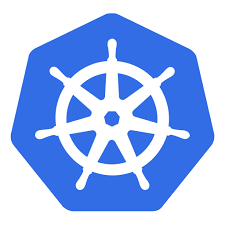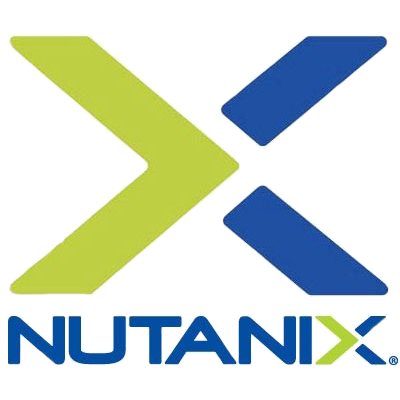- person Penulis:
-
 Dimas Maryanto
Dimas Maryanto
PT. Tabeldata Informatika
- account_balance_wallet Donasi via:
- Saweria a/n Dimas Maryanto
- lock_open Join Premium Members:
- Udemy.com
-
Daftar Materi
-
1. Pengenalan Kubernetes 9
-
2. Getting started with minikube 11
-
1. Overview learning environment with Minikube
2. Install minikube on Mac (Intel Chip)
3. Install minikube on Mac (Apple silicon Chip)
4. Install minikube for Windows 11/10 Users
5. Install minikube for Linux users
6. Deploying an apps/services into Kubernetes
7. Minikube basic control
8. Using your own image into Minikube cluster
9. Minikube addons features
10. Access your apps/service in minikube
11. Mounting filesystems to minikube cluster
-
3. Pods and Containers 13
-
1. Overview Pod and Container in Kubernetes
2. Kubernetes Workloads with Pods
3. Working with Pods
4. Basic Pods and Containers Configs
5. Pod & Container Lifecycle
6. Initialization of Containers
7. Configure env (Environment Variables) in a Pods
8. Configure Request and Limit of Resources (CPUs & Memory)
9. Configure liveness, readiness, and startup probes
10. Pod Disruptions
11. Overview Study Cases: Pod and Containers
12. Study Cases: Monolith apps (Laravel Web MVC)
13. Study cases: Microservice apps (Springboot Rest API)
-
4. Workload resources 3
-
5. Networking (service)
- Materi: belum tersedia...
-
6. Store data using Volumes
- Materi: belum tersedia...
-
7. Kubernetes Client
- Materi: belum tersedia...
-
8. Security RBAC
- Materi: belum tersedia...
-
9. Kubernetes Package manager
- Materi: belum tersedia...
-
10. Kubernetes cluster for Production grade
- Materi: belum tersedia...
-
11. Service mesh with istio
- Materi: belum tersedia...
-
12. Kubernetes on Cloud provider
- Materi: belum tersedia...
- Lastest Posts
-
 09 Apr 23
Working with Deployment object
09 Apr 23
Working with Deployment object
-
 26 Feb 23
Study cases: Microservice apps (...
26 Feb 23
Study cases: Microservice apps (...
-
 05 Feb 23
Welcome to the Nutanix HCF (Hybr...
05 Feb 23
Welcome to the Nutanix HCF (Hybr...
-
 04 Feb 23
Silabus SRE - Nutanix AHV: Pemul...
04 Feb 23
Silabus SRE - Nutanix AHV: Pemul...
-
 17 Jan 23
What is Workload Resources?
17 Jan 23
What is Workload Resources?
-
 17 Jan 23
Overview Kubernetes Workloads re...
17 Jan 23
Overview Kubernetes Workloads re...
-
 15 Jan 23
Getting started with Transaction...
15 Jan 23
Getting started with Transaction...
-
 14 Jan 23
Overview of Concurrency Control
14 Jan 23
Overview of Concurrency Control
-
 14 Jan 23
Time your practice (part 3)
14 Jan 23
Time your practice (part 3)
-
 08 Jan 23
Cleanup Data from Table
08 Jan 23
Cleanup Data from Table
Kubernetes Object Names and IDs
Hai semuanya, Setelah kita mengetahui bagaimana cara beriteraksi dengan Kubernetes cluster. Sekarang kita akan bahas Aturan atau rules yang perlu kita ketahui sebelum mencoba / membuat object Kubernetes yaitu tentang Object Names dan IDs. Aturan atau Rules pada kubernetes terdiri Dari
- Object Names
- Standard definision for Naming resources
- UIDs
Ok langsung aja kita ke pembahasan yang pertama yaitu
Object Names and IDs
Each object in your cluster has a Name that is unique for that type of resource. Every Kubernetes object also has a UID that is unique across your whole cluster. For example, you can only have one Pod named myapp-1234 within the same namespace, but you can have one Pod and one Deployment that are each named myapp-1234.
For non-unique user-provided attributes, Kubernetes provides labels and annotations.
A client-provided string that refers to an object in a resource URL, such as /api/v1/pods/some-name.
Only one object of a given kind can have a given name at a time. However, if you delete the object, you can make a new object with the same name.
Standard definision for Naming resources
Below are four types of commonly used name constraints for resources.
- RFC 1123 Label Names, Some resource types require their names to follow the DNS label standard as defined in RFC 1123. This means the name must:
- contain at most
63 characters - contain only lowercase alphanumeric characters or
- - start with an
alphanumeric character - end with an
alphanumeric character
- contain at most
-
DNS Subdomain Names, Most resource types require a name that can be used as a DNS subdomain name as defined in RFC 1123
- RFC 1035 Label Names, Some resource types require their names to follow the DNS label standard as defined in RFC 1035. This means the name must:
- contain at most
63 characters - contain only lowercase alphanumeric characters or
- - start with an
alphabetic character - end with an
alphanumeric character
- contain at most
- Path Segment Names, Some resource types require their names to be able to be safely encoded as a path segment. In other words, the name may not be
.or..and the name may not contain/or%.
UIDs
A Kubernetes systems-generated string to uniquely identify objects.
Every object created over the whole lifetime of a Kubernetes cluster has a distinct UID. It is intended to distinguish between historical occurrences of similar entities.
Kubernetes UIDs are universally unique identifiers (also known as UUIDs). UUIDs are standardized as ISO/IEC 9834-8 and as ITU-T X.667.

